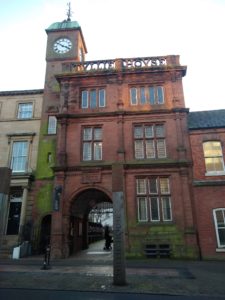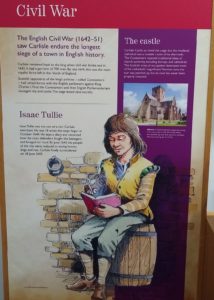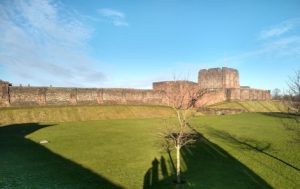Part One
The Story of King Arthur
If you were like me, you heard the story of King Arthur and his Round Table as a child. The archaeologist Nowell Myers wrote: “No figure on the borderline of history and mythology has wasted more of the historian’s time.” I understand someone using his life to chase down this story. In the United States, journalists and historians both speak of the Kennedy era as Camelot. It insinuates a metaphor of utopianism.
When I read, heard, or saw the tale of King Arthur, I wondered if he was real. I wouldn’t have agreed the fanciful aspects of the Arthur story were true. Was he a true character though or just legend like Paul Bunyan and Babe the Blue Ox? The extraordinary figures, like Merlin, and magical qualities did not extinguish the wonder, rather enhanced it.
How does someone leap from the imaginations of the supernatural and yet inquire of the historical? The two seem to contradict. Do they? Supernatural and historical?
I would speculate that the Arthur saga disappears without human vulnerability to paranormal intervention. Normal doesn’t explain a planet hanging in space with the beauty and complexity of earth. The imagination of the human mind takes a trajectory into the supernatural. Man knows God. This is his default position.



Carlisle Castle
My wife and I have lived for a few months in the Northern England city of Carlisle. Saturday we walked around and through Carlisle Castle. We left the castle to return on foot to our flat, a small studio apartment, but we stopped along the way into the lobby of Tullie House Museum.
During the English Civil War, royalists occupied Carlisle Castle under the command of Sir Thomas Glemham. From October 1644 to June 1645, the Scots besieged the castle under Major General Sir David Leslie. The battles fought in the Civil War included Scottish Covenanters. Isaac Tully was in Carlisle the whole time and he wrote in his diary a journal of the siege now possessed by the British Museum in what are called the Harley Manuscripts. Isaac Tully’s family, who built the Tullie House in Carlisle, was a member of the merchant guild.
Carlisle Castle and Tullie House Museum dovetail at this siege during the English Civil War. Hundreds of years later my wife and I walked into both. As we passed through the lobby of Tullie House, we noticed an exhibition beginning there on February 4 on the The Legend of King Arthur. My mind raced back to my childhood.
Arthur at Tullie House
Apparently, one tale in the King Arthur story relates to Sir Gawain and the Carle of Carlisle, a Middle English rhyme written about 1400. Middle English is the very difficult English of Geoffrey Chaucer’s Canterbury Tales, written at a similar time. This early English poem features Sir Gawain, the apparent nephew of King Arthur and an English knight of the Round Table. This permits the city of Carlisle to claim King Arthur as its own and motivates it to feature an exhibition with his name.
The main museum leadership stood in the lobby last Saturday at about 4:30pm. I asked the two older men and woman whether Arthur originated in Carlisle. A conversation ensued for five to ten minutes. One of the men smiled and said several English towns or cities claim King Arthur. I asked, “Is he real?” All three laughed, while knowingly looking to each other. The other man said, “Come to the exhibition!” The woman answered, that was a difficult explanation.
Supernatural
I told the three museum employees that I thought it was interesting that some or many think about a historical derivation to the story and yet it includes the supernatural in it. All three of them just stood and stared in silence. No. Comment. What turned them from very talkative and engaged to frozen incapability to reply? I said the one word, “Supernatural.” They smiled in silence and I smiled back with a small laugh. I laughed because I knew why they said nothing in reply.
Continuing, I said something like the following: “The instinct for the supernatural in these stories complements the understanding of the supernatural in the world that they see. They know all this, as complex as it is, didn’t take place by accident. It is not a natural only world.” The three still just stood and smiled with no comment. It is a government funded museum and exhibit.
If the three museum workers showed agreement even by nodding “yes,” then as government employees, they use their positions to confirm the supernatural. Nothing supernatural can be a fact. I would enjoy even a minimal philosophical agreement that, even if not themselves, others enjoy the supernatural element of the King Arthur narrative, mirroring what they accept in the real world.
Two Other Examples of Shunning the Spiritual, Supernatural, Religious, or Biblical
York
This experience reminded me of a trip my wife and I took to York earlier, where we walked into a shop in the Shambles there. Something on a sign in the shop mentioned ghosts. The two young ladies said the shop was haunted and talked of a few experiences of validation. So I asked them, “So you believe in the supernatural?” I continued, “This is not just a physical world. There are spiritual beings. It is more than just a natural world.” I stood waiting for an answer, and they stood staring at me.
Castle Gift Shop
Before we walked home from the castle, passing through the lobby of the Tullie house, my wife and I stopped one more time into the castle shop. It is an English Heritage site and has a large assortment of items to purchase. In one of the two rooms, bottles of alcoholic beverage filled several shelves to buy. On a small table, three bottles sat and a young man said that today they offered some for a sample. Two were alcoholic. One was not.
My wife and I sampled the non-alcoholic beverage, a Ginger flavored one. Though non-alcoholic, it was intended, he informed us, to give the same kind of initial kick that alcohol gives. He said that the company started during the days of the temperance movement in England, which continued today selling these non-alcoholic type drinks. I mentioned to him that the United States had a period of prohibition of alcohol. He knew about it.
I began explaining to him why the prohibition movement started in the United States and referred him to the Ken Burns three part documentary on the Prohibition. He wrote it down. I told him that in part the prohibition occurred for biblical reasons. Before he answered me, he put his hand over the English Heritage Site logo on his shirt, warned us that this was not the opinion of his employers, and then he commented on the temperance movement in the United Kingdom. He felt the pressure to offer a disclaimer that was nothing more than a historical observation, because of its thread-like proximity to something scriptural.
Bifurcation of Truth
What I am illustrating is the real-life bifurcation of truth in the world. People segregate the spiritual from the physical. They divide the natural from the supernatural. They treat the Bible and anything religious as distant from facts and even history. Few to none will make mention of it.
I would expect little different in the United States to what I’m describing in England. A vast majority of people relegate the truth, if it is in the Bible or if it is moral or even religious, to a different category of information. They would not call it knowledge. They see it as a matter of faith, which is relativistic, individual, private, and subjective.
Employees in public institutions in a widespread manner, almost exclusively, will not talk about anything even related to the supernatural in a public setting. I will often mention the Bible. I did not even do that in this instance. That alone brought total silence.
Post Enlightenment Dualism
Previous to the Enlightenment, no divide existed between the natural and the spiritual, a rebellious invention of human derivation. Both proceeded from a single mind, consolidated in a unified whole. Man reflected the image of God, which also fulfilled his purpose. This is also the truth about man. He is not the product of an accident of nature.
Modern science arose from believers in God, who saw His invisible hand in all matter and space. The arrangement of the parts with mathematical precision turned to a conception of a machine with its varied innerworkings, contraptions, and mechanisms. The body functioned according to scientific laws with the mind regarded as operating as an independent entity. The concession to man as mere device gave way to everything no longer the design of a Creator.
The recalculation of man as outgrowth of natural causes did not occur solely by rationalistic determinations. Man wants what he wants. To get it, he eliminates God, a final judge, to stop him from getting what he wants or judging him for wanting it. What I describe, however, is the means by which people discarded God for their own lust. His inclusion in a conversation interrupts their self-approval and personal autonomy and violates their conscience. As a feature of their fallenness, they avoid that conversation with its awkwardness, painfulness, anxiety, or anger.
Recent Comments